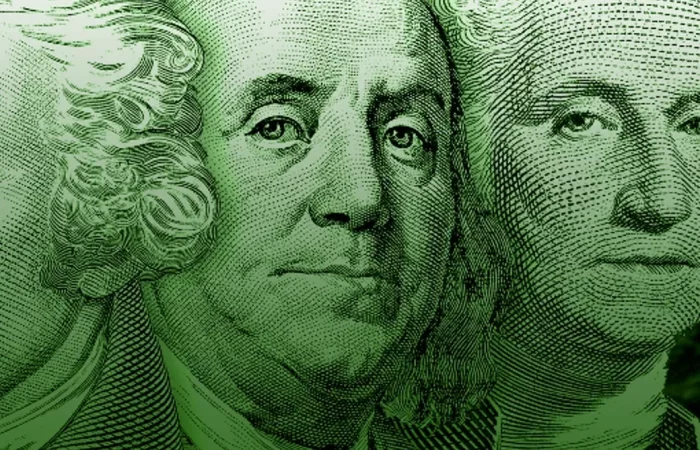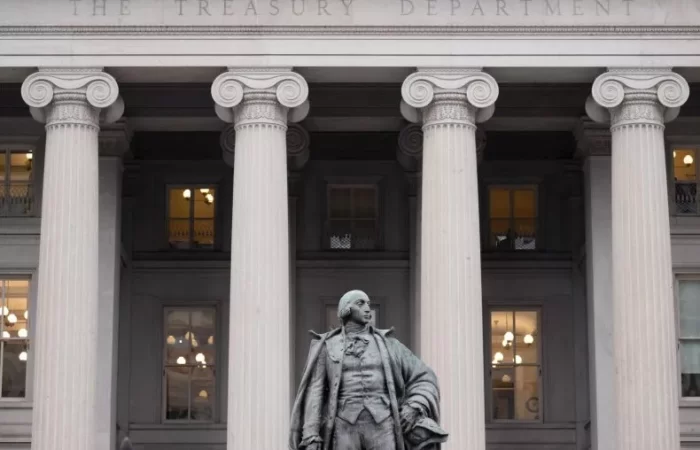Picture this: a global summit of all the governments and public and private officials who have been sanctioned by the United States. The family photo would feature a diverse group of leaders from across Africa, Asia, Latin America, and the Middle East—and look not unlike the G-7 or any other semiregular gathering on the global calendar.

Imagine, if you will, an extraordinary global summit encompassing the entirety of governments, public figures, and private officials who have found themselves subjected to the punitive measures of the United States. This surreal gathering would manifest as a remarkable amalgamation of diverse leaders hailing from every corner of the world – Africa, Asia, Latin America, and the Middle East – and its striking resemblance to the illustrious G-7 or any other esteemed congregation on the international stage would be difficult to dismiss.
In this arresting tableau, China would inevitably emerge as the central figure, positioned with palpable pride as a beacon of morality, diplomacy, and unwavering camaraderie. It would unabashedly present itself as the paragon of virtue, extending its benevolent hand to the very governments that have been publically named and shamed by the United States.
The implications of such a gathering are profound and multifaceted. It would underscore a pivotal shift in global dynamics, where erstwhile adversaries now find themselves united by the common experience of facing the ire of American sanctions. The unintended consequence of these punitive measures, originally meant to uphold the Western order and curtail the influence of autocrats, has instead engendered an inadvertent alliance, wherein nations forge new bonds of cooperation under the perceived shadow of American censure.
China, seizing the opportunity presented by the vulnerabilities created through sanctions, deftly capitalizes on its newfound role as a diplomatic and economic ally. By positioning itself as a supportive benefactor to these sanctioned nations, it effectively augments its soft power and fosters deep-rooted ties on both commercial and financial fronts.
This emerging paradigm engenders a subtle but unmistakable realignment in the geopolitical landscape, as the sanctioned nations begin to recalibrate their loyalties and pivot towards China’s accommodating embrace. The once-imposing Western order, intended to safeguard international norms and values, now faces an existential threat as its very actions unwittingly sow the seeds of its erosion.
As the global stage witnesses this intriguing juxtaposition, it becomes increasingly apparent that the hitherto unassailable grip of the United States is being contested. The complex interplay of power dynamics and the delicate art of diplomatic maneuvering unfold before our eyes, reshaping the contours of the world order with profound implications for the future.
In conclusion, the envisaged scenario offers a cautionary tale, underscoring the imperative for nuanced diplomacy and an acute understanding of the ripple effects triggered by punitive actions. The unintended consequences of sanctions can prove to be the catalysts for unforeseen alliances, tilting the balance of power in unexpected directions. This unfolding narrative serves as a poignant reminder that in the ever-changing landscape of global relations, the consequences of policy decisions reverberate far beyond their immediate objectives, impacting the intricate fabric of international relations and shaping the course of history.

Putting African Aspirations First
America will never be destroyed from the outside. If we lose our freedoms it will be because we have destroyed ourselves from within.
Abraham Lincoln
In the past two decades sanctions have become the go-to foreign-policy tool of Western governments, led by the United States. Recent economic and personal sanctions packages applied to Russia for its invasion of Ukraine as well as to Chinese companies for national security reasons mean the two powers have joined a growing club of U.S.-designated bad boys such as Myanmar, Cuba, Iran, North Korea, Syria, and Venezuela.
According to a database maintained by Columbia University, a total of six countries—Cuba, Iran, North Korea, Russia, Syria, and Venezuela—were under comprehensive U.S. sanctions, meaning that most commercial and financial transactions with entities and individuals in those countries are prohibited under U.S. law. An additional 17 countries—including Afghanistan, Belarus, Democratic Republic of the Congo, Ethiopia, Iraq, Lebanon, Libya, Mali, Nicaragua, Sudan, and Yemen—are subject to targeted sanctions, which indicates that financial and commercial relations with specific companies, individuals, and, often, the government are forbidden under U.S. law.
According to a Princeton University database, another seven countries, including China, Eritrea, Haiti, and Sri Lanka, were under specific export controls. This already lengthy list does not even include targeted sanctions placed on individuals and businesses in countries such as El Salvador, Guatemala, or Paraguay, or sanctions placed on territories such as Hong Kong, the Balkans, or Ukraine’s Crimea, Donetsk, or Luhansk regions.
By 2021, according to U.S. Treasury Department’s report, the United States had sanctions on more than 9,000 individuals, companies, and sectors of targeted country economies. In 2021, U.S. President Joe Biden’s first year in office, his administration added 765 new sanctions designations globally, including 173 related to human rights. All told, the countries subject to some form of U.S. sanctions collectively account for a little more than one-fifth of global GDP. China represents 80 percent of that group.
Presently, an increasingly formidable coalition of autocratic governments is fervently endeavoring to overhaul the governing tenets of the global financial system, primarily driven by the escalating prevalence of U.S. sanctions. This burgeoning alliance heralds a critical juncture that necessitates a reevaluation of the impact of punitive measures, as they inadvertently corrode the very bedrock of the Western order they were initially meant to safeguard.
Beijing’s disproportionate weight in the list of U.S.-sanctioned countries is a problem. That’s because the Chinese Communist Party has fashioned itself an economic, diplomatic, and moral ally of the global south.
Regular Foreign Policy contributor Daniel W. Drezner and columnist Agathe Demarais—a political scientist and economist, respectively—have both recently published detailed arguments about how U.S.-sanctioned governments have exploited loopholes in the U.S. sanctions regime to undermine these measures’ intended pain and have built often-illicit means to replace their reliance on the dollar and Western financial system.
Unlike many among these sanctioned nations, China has the economic weight, growing diplomatic clout, currency stability, and liquidity—at least for now—to push for the increasing international adoption of the renminbi and Chinese financial schemes, such as its Cross-Border Interbank Payment System.
China also provides a sizable and lucrative market for commerce for sanctioned countries’ exports—such as Venezuelan, Russian, or Iranian oil and gas. Though many of the re-routed commercial markets are expensive and inefficient, they provide enough rent to sustain targeted governments.











